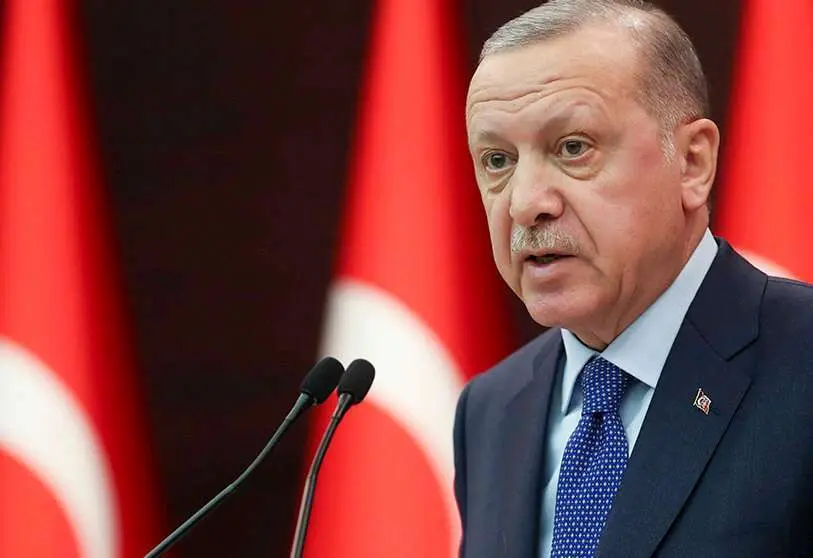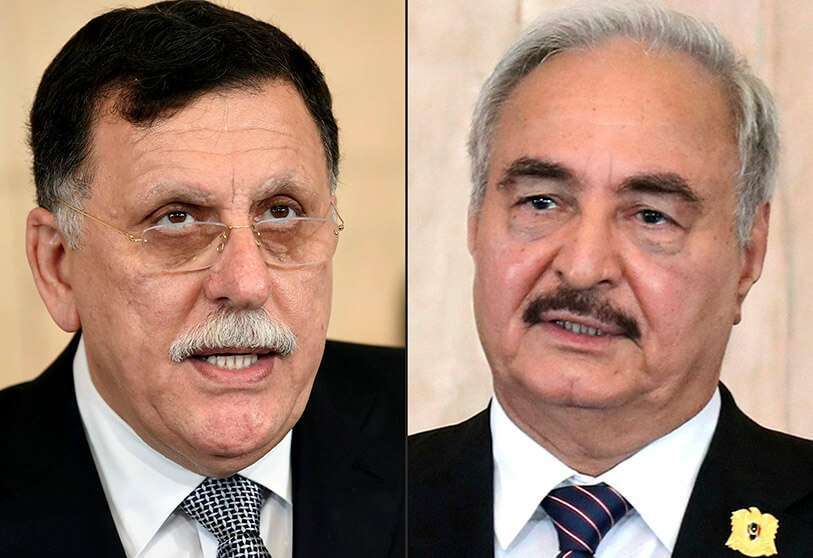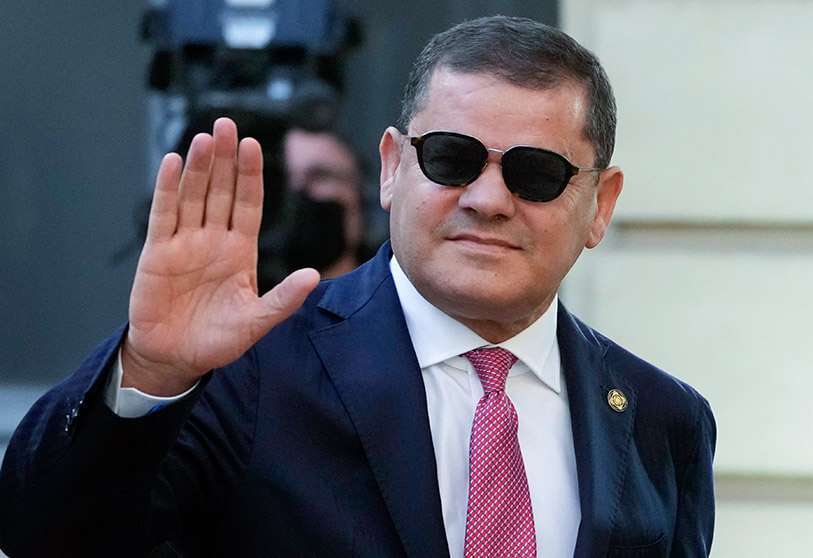Turkey renews its military mandate in an increasingly divided Libya

Turkey's parliament on Tuesday approved the extension of the Turkish armed forces' mandate in Libya for another 18 months, at the request of the country's president, Recep Tayyip Erdoğan. The president's party, the AKP, his nationalist ally, the MHP, and the opposition Iyi Party all voted in favour, allowing Ankara to continue training and advising the Libyan armed forces on the ground.
The text of the decision states that Turkey will continue to uphold "its strong support" for Libya's sovereignty, territorial integrity and unity, emphasising the establishment of a permanent ceasefire, support for a political dialogue to achieve national reconciliation and the creation of a legal framework for national elections.

The text also deplores the context of instability in Libya. "The political uncertainty and management problems that have arisen following the failure to hold the elections scheduled for 24 December 2021 [...] jeopardise the calm established at great sacrifice and pose a serious obstacle to achieving permanent stability," the document reads.
Libya has been in civil war since 2011, following the armed revolt against Muammar al-Gaddafi in the context of the Arab Spring. After the fall of the Arab dictator, the various rebel factions began to fight each other for power, which eventually led to a division of the country in two, between the east (Cyrenaica) and the west (Tripolitania), with two parallel governments. Between 2014 and 2020, the eastern forces, led by Marshal Khalifa Haftar, confronted the internationally recognised Government of National Accord, led by Fayez al-Sarraj.

In 2019, the Turkish parliament approved the deployment of troops to Libya to support Tripoli, then under siege by Haftar's army. At the same time, Ankara and Tripoli signed a memorandum of understanding on maritime delimitation, recognising Turkey's irresponsible claims over Greek and Cypriot waters.
Turkish support, which also involved sending Syrian mercenaries and providing weapons, enabled the Muslim Brotherhood-friendly Government of National Accord to drive Haftar out of the west of the country and brought the fighting to a stalemate, leading to the signing of a 'permanent' ceasefire between the two sides. Since then, Turkey has become one of the main foreign actors in Libya.
Subsequently, in a UN-backed peace process, the parties agreed to the emergence of a National Unity Government in Tripoli, with Abdul Hamid Dbeibé as prime minister. According to the agreement, nationwide presidential and parliamentary elections should have been held in December 2021, but lack of consensus on the legal framework for these elections prevented them from being held.
Faced with political deadlock, on 10 February this year, the House of Representatives, based in the eastern city of Tobruk and elected in the 2014 parliamentary elections, in which the west of the country had a low turnout, moved to appoint Fathi Bashagha as prime minister, a move rejected by Dbeibé, who has refused to relinquish his post.

On 17 May, Bashagha, who has allied himself with Haftar, the House of Representatives and several Tripolitanian militias, entered Tripoli to seize government institutions from the Government of National Unity, but was driven out by troops loyal to Dbeibé. Since then, Bashagha has been based in Sirte, a city in the centre of the country. Meanwhile, his allies have blocked part of Libya's oil production as pressure on the internationally recognised government.
Last Sunday, representatives of the House of Representatives and the Tripoli-based Supreme Council of State, which is close to Dbeibé, failed to reach a consensus on establishing the legal framework for elections at a UN-mediated meeting in Cairo, and the prospect of a new de facto division of the country is drawing ever closer.
Ankara, for its part, officially recognises the GNU, although Bashagha has been one of its main allies in Libya since 2019, particularly during his time as interior minister in the Government of National Accord.
Turkey has avoided taking a position in favour of either side, and the Declaration does not take a position either. Moreover, Ankara has sought to strengthen its contacts with the east of the country, neglected since 2011, by seeking to reopen the Turkish consulate in Benghazi and air routes to the region. In the future, however, Bashagha's closeness to Haftar, his bitter enemy in the Arab country and an ally of Russia, the United Arab Emirates and Egypt, could be difficult for the Sunni power to assimilate.

Erdoğan's Turkey has been accused of pursuing a 'neo-Ottomanist' policy in its neighbourhood, seeking to increase its influence in those countries that were historically part of the Ottoman Empire, and has already intervened militarily, directly or indirectly, in Syria, Iraq, Azerbaijan and Libya, as well as naval harassment of Greece and Cyprus.
However, the country's poor economic situation, as well as the proximity of the upcoming presidential elections, have led Erdoğan in recent months to a rapprochement with several of his regional rivals, including Riyadh, Abu Dhabi, Tel Aviv and Cairo, and to a less aggressive foreign policy in some scenarios.










